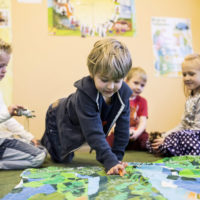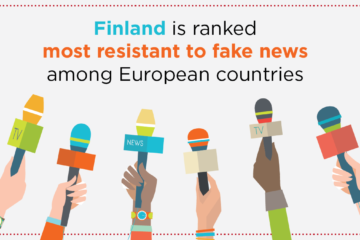Korea’s Goal: One Million Digital Professionals by 2026
Korea’s Ministry of Education announced plans to prepare workers for the coming digital future. Their goal is 1 million workers with expertise in artificial intelligence (AI), big data, the metaverse, and other digital technologies to meet industry demand and promote the integration of digital technologies into other fields. The effort stretches from primary to post-secondary. Universities will increase admission quotas for their digital-related departments and the government will provide subsidies to increase the number of researchers in digital fields. A pilot project that starts this year will support software and AI courses in elite science high schools and there are plans to create new high schools specializing in digital technologies. Coding classes will be offered in elementary and middle schools for younger students. Read more in The Korea Times.

Swiss Apprenticeships On Track to Return to Pre-Pandemic Levels

New evidence shows that demand for apprenticeships remains high in Switzerland even after pandemic-related disruptions — particularly in growing fields like IT and computer science. Each year, more than two-thirds of Switzerland’s high school students select this “dual education” pathway that combines school-based learning and practical training at a worksite. In 2020, lockdowns forced many companies to send apprentices home. Working from home was difficult for students who had intentionally selected a practical learning option, and many of them reported a decrease in motivation levels and an increase in stress. This year, according to the State Secretariat for Education, Research, and Innovation, it appears that interest in apprenticeship has not faltered: at least 79 percent of apprenticeship roles have been filled so far. While not quite as high as the pre-pandemic rate of 87 percent, “[w]hat positively surprised us from the latest survey was that there seems to be a relatively quick recovery,” says Ursula Renold, professor of education systems at ETH Zurich and NCEE advisor. Read more at SWI swissinfo.ch.
B.C. Creates Dual Credit Programs in Early Childhood to Fuel Growth of the Sector
British Columbia is encouraging more secondary students to enter the early childhood education profession by giving them a head start on their degrees. The province has created 30 new dual credit programs to enable students in grades 11 and 12 to earn credits toward a post-secondary early childhood education degree. Jennifer Whiteside, Minister of Education and Child Care said: “High school students who complete dual-credit courses are more likely to graduate on time and transition to post-secondary education, leading to better career opportunities, while also helping develop our province’s workforce in the early childhood education sector.” The new programs will be funded by an over CAN$5 million joint investment by the federal government and the province to expand the availability of high quality affordable child care. For more, see BC government news.

Community Schools, Vocational Ed, Early Learning in Finland’s 2023 Budget

Investing in early education, vocational education, arts and community programs, and early learning are among the goals of Finland’s education budget proposal for next year. The budget includes a €50 million increase for vocational education, €60 million for early learning and €120 million for additional supports for immigrant students. These priorities come as Finland is increasingly educating refugees from the Ukrainian war. In addition, a pilot community schools model that encourages community outreach to combat absenteeism and promote early identification of learning needs will be rolled out across the country. Read the Finnish Ministry’s news release here.
New Master Plan to Support and Include People with Special Needs in Singapore
The Singaporean government has adopted a set of 29 recommendations to create a more inclusive society in which those with special needs can live independently and engage in education and employment. The Enabling Masterplan 2030 lays out a set of changes that cover the life stages and various needs of people with special needs and their caregivers. This includes establishing a target employment rate of 40 percent by 2030 (up from the current rate of 30 percent). To support students, the Ministry of Education will partner with social service agencies in launching two new early childhood intervention centers next year and five new special education schools by 2030. The government will also create regional Enabling Service Hubs to provide support and offer classes in daily living skills, physical activity, and the arts. To read more about the full set of recommendations, see The Straits Times.





